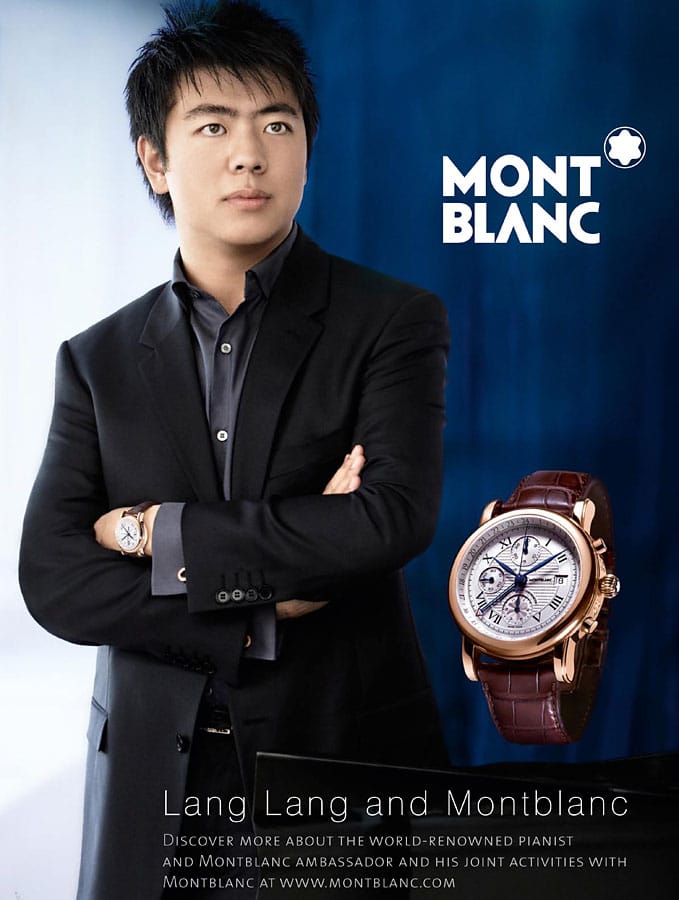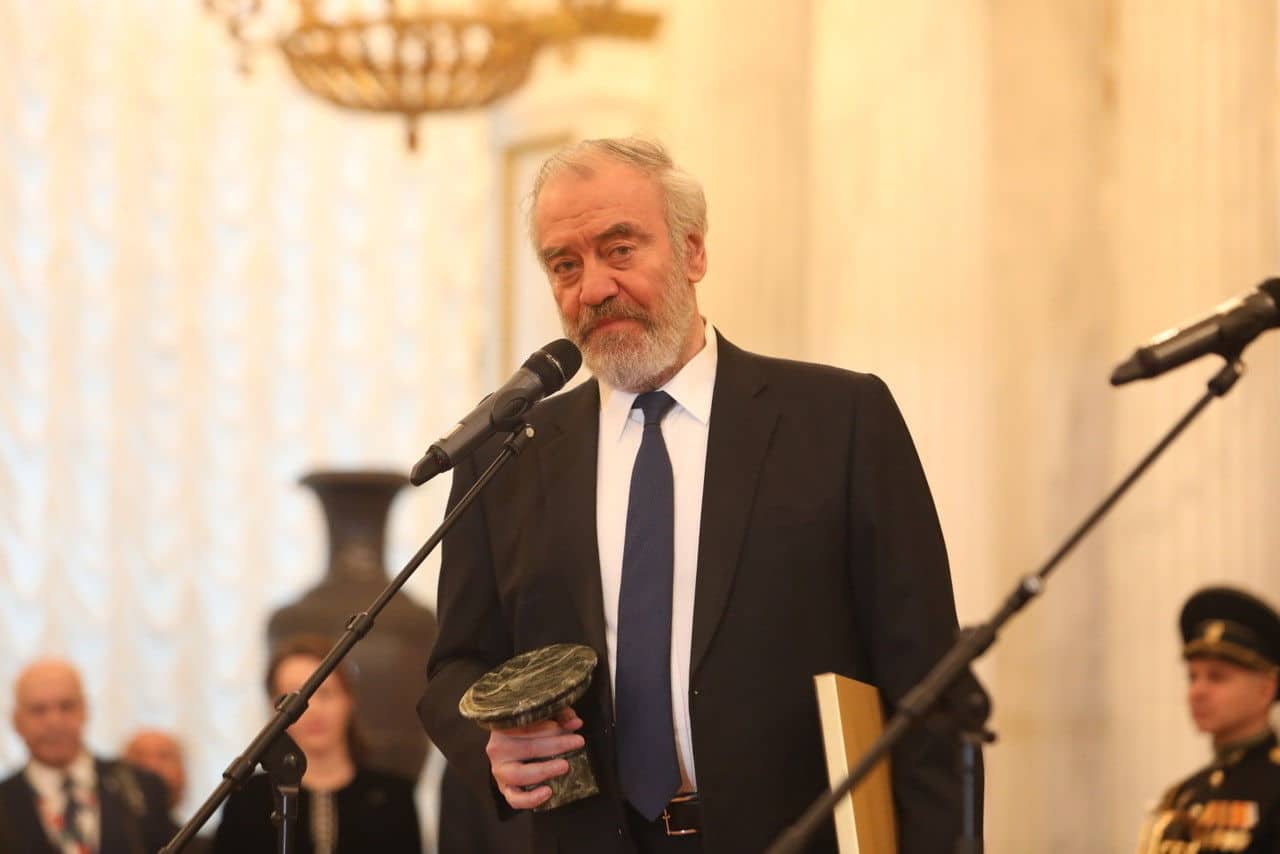Orchestras are now brands. They don’t take risks
mainIgor Toronyi-Lalic in the Guardian:
Many orchestras are now brands. Experimentation couldn’t be further from their minds. Fitting in, commissioning works that resemble previous ones by this or that respectable composer: these are the standards by which success is measured. And the more pedestrian the artistry, the more grand the claims often are about a work’s transformative powers. Music is no stranger to snake-oil.
Like banks, most orchestras are too big to fail: self-preservation trumps exploration….
Read on here.







Philippe Jordan: http://www.lebook.com/sites/default/files/styles/showcase_image_large/public/jaeger_lecoultre_ddb_photo_kurt_iswarienko.jpg
Such advertisements are merely a way of acquiring money through sponsoring, which does not mean that the orchestra or mr Jordan is no longer free to perform what he wants. The Vienna Phil is also ‘watched’, and it does not harm anybody. And audiences hardly give attention to such advertisements because they come for the music, not for the watches. It is a bit of theatre really, to increase the budget.
In view of some of the simply awful so-called ‘music’ that has been written in the last 50 years, I would have thought that at least the orchestra commissioning music that is listenable to was a decided advantage.
There’s so much wrong with this article that one hesitates where to begin. But let’s take a couple of points.
Are orchestras – which ones, where, when? – merely conservative, conventional? For many people, they are. But for many other people, they are not and are instead undermining their own existence by playing things that have nothing to do with music. It is like saying: ‘people are bad’ – useless generalizations.
The article is an attempt at promoting the new LCMF Orchestra and obviously, orchestral music is not on their agenda: ‘And so the new LCMF Orchestra – which debuts at this year’s London contemporary music festival on 15 December – aims to provide a home for those who’ve never written for the orchestra, improvisers, electronic producers….’ so, people who don’t know how to write for orchestra and are not interested in it, who nonetheless are presented in one breadth with someone who was an expert: ‘For the Berliozes of today’ – ‘….whose career paths…’ like Berlioz’ – ‘…. have been fidgety and contrary.’ So, if you are not accepted by orchestral programmers, you must be a Berlioz. Which means there is a tsunami out there of geniusses, which is highly unlikely. Such naive misunderstandings are the result of 20C modernist propaganda: rejection = genius, in itself an outgrowth of 19C romanticism. A cow is an animal, but that does not mean that any animal is a cow.
But all of that is not surprising because ‘Composing in the approved idioms is always preferred over something more raw, exploratory, problematic or new.’ Such descriptions have no meaning if not placed in context: the Eroica was all of those things in 1805; 200 years later it has lost nothing of its qualities but they have now been established as classical.
‘Morton Feldman had to wait until 2006 to be allowed on to a Proms programme, 19 years after his death. Pauline Oliveros, another master, didn’t even get that close. Those are just the dead greats.’ The author has no idea what these lines really mean: Feldman and Oliveros were writing sound art, the first in a brilliant way (though entirely unsuited for the orchestra format due to their length) and the second in an embarrassingly amateurish way, as can be checked in her silly and entirely uninteresting, primitive sound scapes:
https://www.youtube.com/watch?v=yXV0b84FbQs
‘How long will it take for a living great such as Jennifer Walshe to be let in? And what about those working outside the classical tradition? Who knows how much more interesting things could get if they really branched out to noise artists such as Russell Haswell or improvisers and conceptual artists like Maggie Nicols and Alison Knowles.’ The author here confuses music with noise, apparently he thinks that music IS noise. And mrs Walshe’s engagements are numerous but music is not one of them:
https://www.youtube.com/watch?v=qO_OPpefNRY
https://www.youtube.com/watch?v=inJoojhzSDg
Such texts are always self-defeating, assuming that if something has nothing to do with music and its traditions and its formats and cultural aesthetics, it must be ‘branching-out’, ‘explorative’, ‘avantgarde’ etc. etc. in short: the postwar modernist ideology which was so happy to throw the entire Western musical tradition overboard, considering it as a mere impediment, something best to get rid of, like someone throwing a Velasquez in the bin because ‘you cannot do anything with it’. Barbarism pur sang disguised as artistic progress, as if destruction = improvement.
‘The cartel that is the publishing industry – who feed composers who play the Auber game to lazy programmers – are also to blame. Like corporations, they revel in standardisation of notation and style; aesthetic conservatism is their aim. From this flows so many other ills. By narrowing the pool, quality is constrained, diversity becomes impossible.’ Publishing is another field of complex problems: now that many composers have become self-publishing – thanks to computer technology – the publishing houses are in peril and indeed have turned into commercial businesses, which means that they are offering services and materials to the orchestras and ensembles. It is THERE where the selections are made, the publishing houses are only concerned about surviving and selling their products to clients, nothing more.
‘Which is why London contemporary music festival has drafted a manifesto titled Propositions for a 21st-Century Orchestra, with a few reminders of what matters and what doesn’t. “Composers who’ve never written for the orchestra are NOT to be feared,” we state. “Commissioning them will be our priority.”’ For people who apparently have not the slightest idea what music is, what sonic art is, and what the musical tradition of the West is and has been, and its complex relation to modernity, who obviously never explored the intentions of postwar modernism in spite of the many writings produced by avantgarde artists, to imagine that they are able to define ‘what matters and what doesn’t’ demonstates a joyful optimism resulting from a deep abyss of ignorance, to put it mildly.
But at the end of the article, finally the truth comes-out:
‘Fifty years after composers such as Kagel and Cardew made the first attempts to pull it apart and examine its power relations, the potential for dissecting the orchestra conceptually – for prodding and poking it, for sticking it under a social and psychological microscope – remains untapped.’ The orchestra as an object to study its social engineering, as if the music is merely a cover-up of authoritarian, suppressing hierarchies, a fossil from undemocratic times and in scandalous contradition with our enlightened, humanist times. Implied is that if we listen to the sorry buzzing of Oliveros or the infantile parading of mrs Walshe, we will be spared the sorry spectacle of unfair suppression of the poor players who suffer under the crushing domination of Beethoven and his doctatorial conductors. But in fact, another domination would have taken its place, that of the ideology of nonsense, under the cover-up of progress and renewal – comparable with totalitarian societies like the nazis and communism who excelled in creating fake realities.
So, instead of helping the orchestra as a cultural institution survive in modern times – which is a legitimate and very real concern – such initiatives merely help to undermine it by mobilizing wide-spread ignorance: it is a form of populism, nothing more. I would have liked to advice such people to read something more thorough about the subject before embarking on creating a ‘new orchestra’, but I fear it may be too difficult.
https://www.futuresymphony.org/the-relevance-of-classical-music-part-i/
Bravo! I was intending to write, but you alread did bravely
The LCMF, and the new Contemporary Orchestra, if that’s what it is, sound like exactly the forum and the practitioners to exploit all the talent Mr. Toronyi-Lalic claims has been ignored. The self-identification ”contemporary music” lets its aficionados — and they certainly exist — know where to find the sort of experimentation, innovation and novelty they seek from their listening experiences.
If, in the end, they outnumber the audiences at the LSO and such “brands,” then they will have won. If some of the works they play catch the ears of people in a position to spread it around — producers, etc. — good on them, and they may well transition to the “brand” halls. All in all, this sounds like a fine venture, one that serves all music fans well. It will draw its devotees and alert its detractors, whether they be hidebound, nervous nellies or simply continuing admirers of some of the contemporary genius’ predecessors.
I offer this not in sarcasm or condescension. I went to several New Music, as it’s called in Canada, concerts, and we always went with the solemn declaration that we would leave at the first discreet opportunity if either of us was disliking it too much. In no case did we leave early. While not really my cup of tea, and not something of which I would want a recording, all these evenings provided interest. Some of the composers, like Harry Somers, were well-established in Canada. Others were making names for themselves in a smaller listening community. None of them was brain-breaking or made you wonder what the hell they thought they were playing at. Several are people we will hear from again, at least over here — or perhaps one day at your LCMF.
Of course there is much new music which is worthwhile, there is even sound art that is worthwhile, believe it or not. But this article narrowed its subject to a particular way of thinking about new music which has nothing to do with either music or ‘the orchestra’ as a medium. It decribes a typical ultra-left way of thinking about culture: that practicing art is easy and thus open to anybody, that there are no unfair quality standards which would throw-up tresholds for people with ambition but without talent, and all of this under the cover of progress, equality, democracy, justice and especially: progress – as if there is something like that in the arts (Bach eclipsed by Boulez and Xenakis).
Bravo.
He’s right that orchestras have brands. I understand the objection to orchestras playing it safe, but when you consider the resources required for a professional orchestra to rehearse and perform, say, a 30-minute work, it’s understandable why there is some risk-aversion.
I do think the Proms get a bad rap, though. I don’t know of any mainstream music festival whose programming is remotely as adventurous.